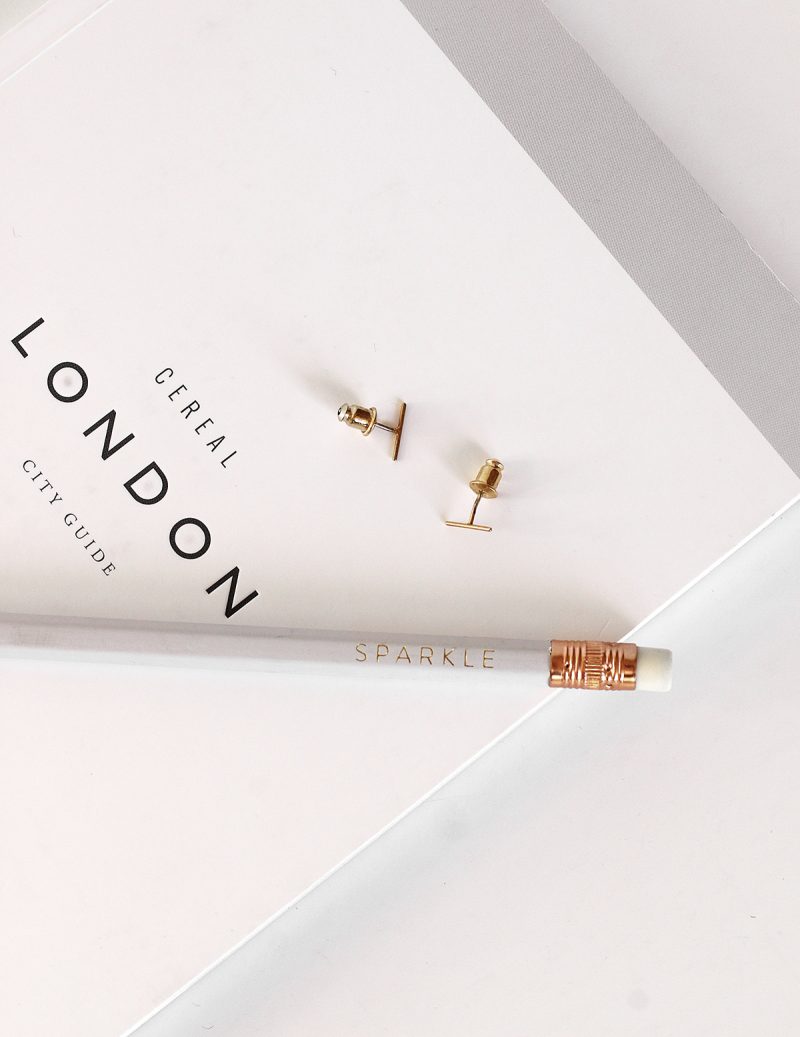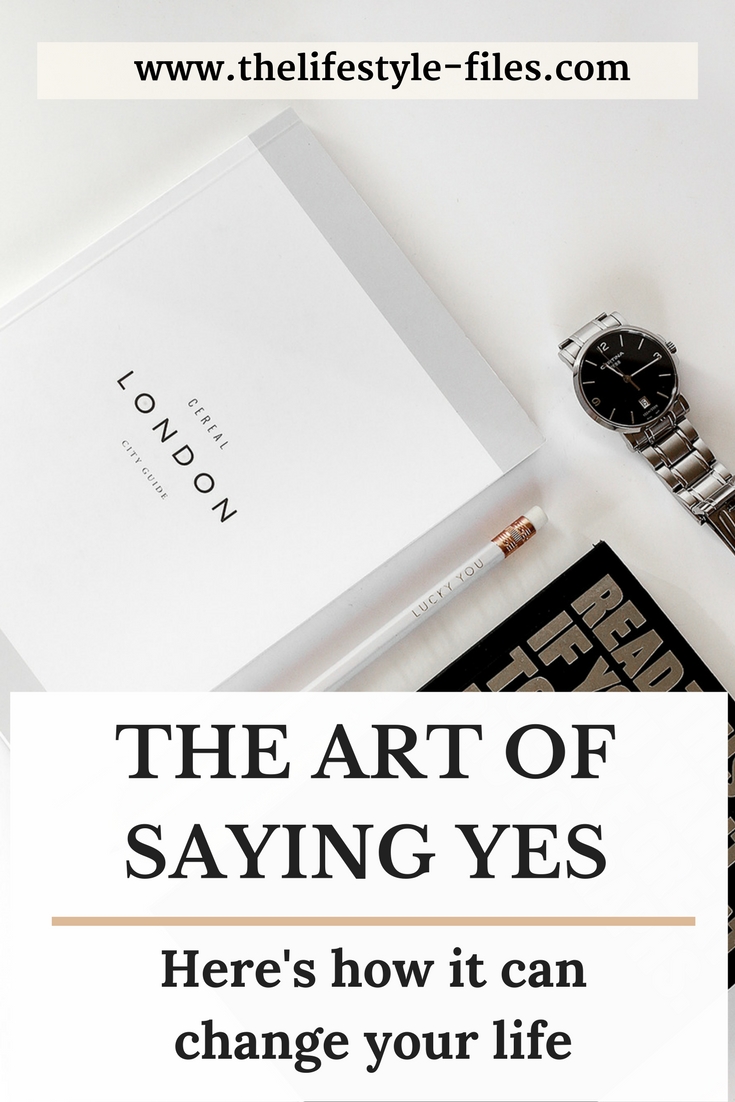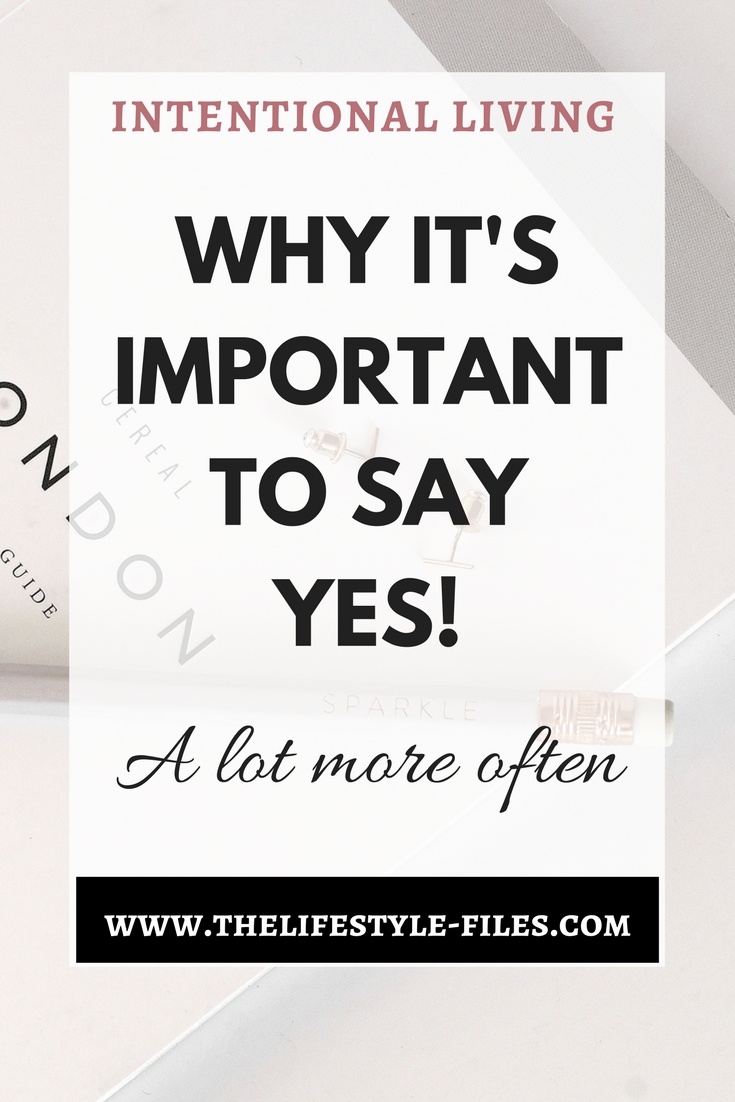
Lately, I’ve stumbled upon a lot of articles and blog posts that all tackled the following issue:
How to say no more often.
The central points of these articles were:
+ We say yes to a lot of things that in secret we really don’t want to do.
+ It adds a lot of pressure to our already overwhelming responsibilities, calendars, and to-do lists.
+ We say yes because we want to please people, we don’t know how to say no, or don’t want to be judged or criticized for saying no.
+ And as a result we lose sight of our own goals, priorities, and preferences and live our life as others want us to, not as we should or would like to.
So, the solution is to learn to say no and practice it a lot more often.
And there is, of course, a lot of truth to this. We do need to draw some boundaries. We must set up priorities and handle our time and attention accordingly. Life really is too short to spend it on things that are not important to us.
I have a different kind of challenge though. Saying no has never really been a problem for me. I usually could stay firm on my commitments and priorities, and thus saying no in a nice and polite was not an issue.
Saying yes, however, was often more challenging.
Staying in the comfort zone
There are people who, when faced with challenges or presented with an opportunity, always and instinctively say yes. They often have an adventurous, carefree, seize the day kind of attitude.
I was never that type of person. Especially when it came to my deepest fears, my personal (not work) comfort zone, or insecurities.
When it came to work, I could always face these challenges. I don’t have a problem with responsibility, I love working on new things, learning on the go, and I always do everything I can to be better at my job.
But when it comes to personal issues, I’ve come to realize that I’m more inclined to say no than yes.
For example, I’m not the greatest public speaker on earth, to say the least. I can do it if I practice enough and if I’m in the right mindset, but to say that I’m terrified of these situations is an understatement. And whenever I could, I avoided these situations. I cannot remember one time from the last few years when I was presented with an opportunity like this – and there have been some, from conferences to lectures – when I didn’t say no. I simply couldn’t get over my instinctive fear and I simply chickened out.
The same with unfamiliar social situations. My fiancé is the best connector ever – wherever he goes, he can make friendly conversations with anyone. He easily makes new connections, set up plans to meet later, and follows through. When we lived in Washington DC, he was friendly with all of our neighbors within a week. I probably couldn’t have picked out our neighbors from a lineup. He went to all social events organized by the complex, from wine tasting to bootcamps. It took me 4 months to go to a fitness class. Every time he invited me, or, going back to the present, suggests we meet up with someone new, I usually shut him down. I have my firm circle of friends and family that I’m comfortable with and have a difficult time opening up to others.
No means no failure. But is that enough?
I could call it textbook introvert attitude. Or a deep fear of failure. After all, no means no failure. No is safe. Yes is frightening, it can require courage, commitment, self-belief, and sometimes days and weeks of anxiety. Is it worth it?
I’m beginning to think that yes, it’s worth it. Because all the interesting things are happening outside the comfort zone – personal growth, life lessons, experiences, knowledge, progress. Will I ever get over my fear of public speaking in front of the mirror? I don’t think so. Is there a chance that I get better at it with practice? Well, experts say so. Can I meet new people at home? Definitely not. Is there a chance that those new relations blossom into something deeper, like a new friendship? Definitely yes, if I’m honest, it happened before when I let it.
So, the question is: shall I take a chance?
That answer should probably be my first yes, followed by many others.
I could list now a thousand reasons for why we need to say yes more, but let me just quote someone else who has put it perfectly:
Is there something you should be saying yes to more often?





